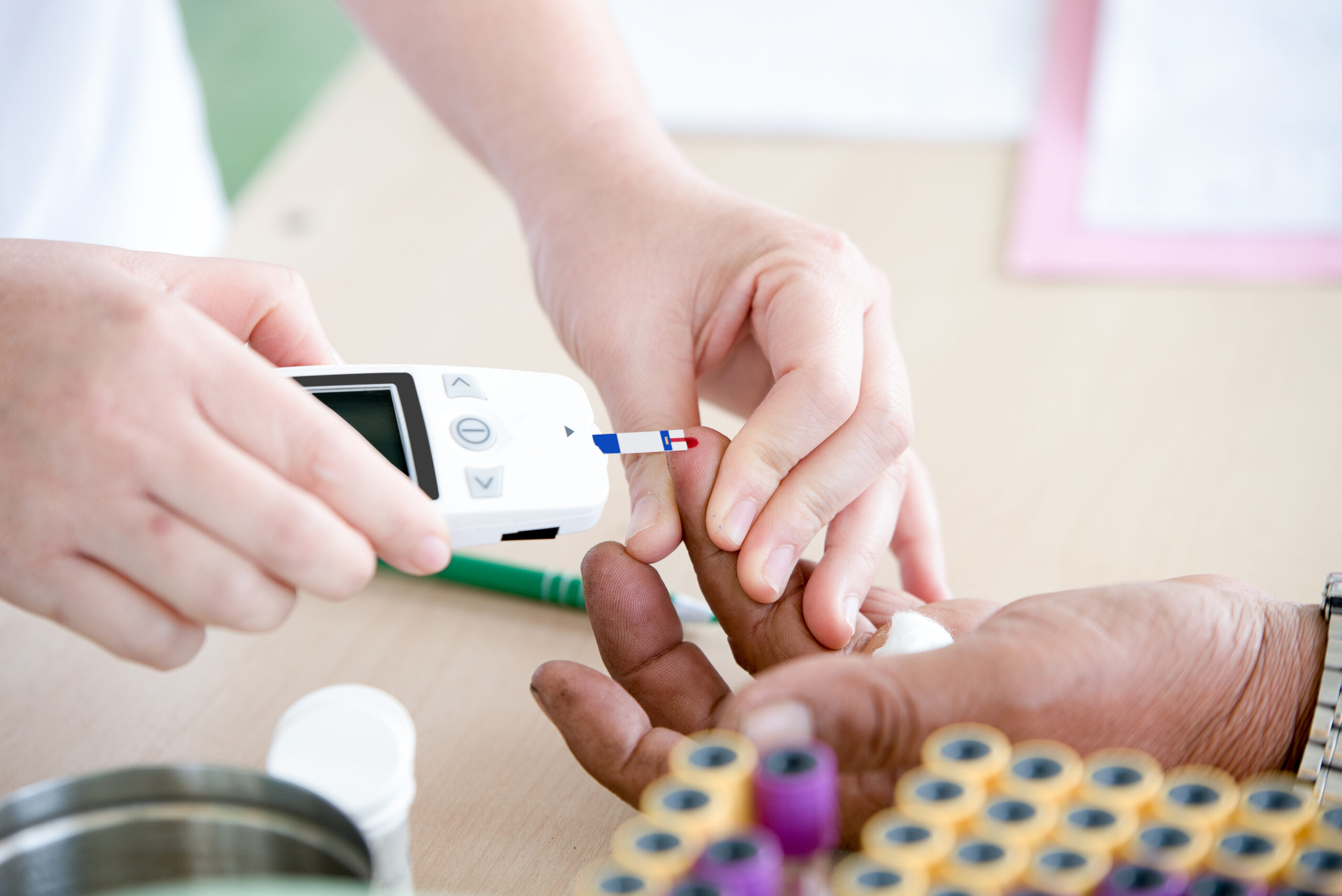Alarming statistics highlight the Sultanate’s growing diabetes challenge
Diabetes holds its position as the third leading cause of death in Brunei Darussalam, serving as a stark reminder of its substantial impact and the crucial need for its effective management, part and parcel of which, involves addressing the Sultanate’s rising obesity rate.
This was highlighted by Minister of Health Dato Seri Setia Dr Haji Mohd Isham bin Haji Jaafar during the World Diabetes Day 2023 at The Mall, Gadong on Saturday.
Globally acknowledged on November 14, World Diabetes Day serves to heighten awareness on the diseases as well as a decisive call to action.
From 2021 to 2023, the chosen theme remains ‘Access to Diabetes Care’, accompanied by the slogan ‘Know your risk, know your response’.
This thematic focus underscores the importance of understanding individual risk factors and adopting appropriate responses, ensuring a proactive approach to managing diabetes.
Diabetes is a persistent health condition characterised by elevated levels of blood sugar, often stemming from the body’s inability to produce or utilise insulin effectively, explained the minister.
Over the long term, he added, this metabolic disorder can give rise to severe complications, including but not limited to heart disease, stroke, kidney issues, vision impairment, limb amputation, and premature death.
In his speech, the minister emphasised the critical role of understanding diabetes risk, underscoring the importance of individuals recognising their susceptibility and taking proactive steps toward prevention. The majority of diabetes cases, particularly Type 2, he shared, are closely associated with lifestyle factors such as an unhealthy diet, inadequate physical activity, and obesity.
Highlighting the global surge in diabetes, Dato Seri Setia Dr Haji Mohd Isham noted that Brunei Darussalam is not immune to this trend.

Citing data from the World Health Organization, he pointed out that the Sultanate has witnessed a substantial increase in obesity, reaching 32 per cent in 2022, compared to 8.2 per cent in 1990, making it one of the highest rates in the Asia Pacific region.
Furthermore, based on STEPS 2015-2016 data, nearly two-thirds of the overall population fall into the overweight or obese category.
“What is even more concerning is that half of the children and adolescents in the age range of five to 19 years in this country are experiencing excess weight or obesity. Children who are obese face a higher risk of developing Type 2 Diabetes,” he continued. Given these alarming statistics, he stressed the importance of proactive measures to boost awareness, prevention, and access to diabetes treatment.
Citing statistics from the International Diabetes Federation, he revealed that in 2021, 11.1 per cent of diagnosed diabetes cases in Brunei Darussalam were found among individuals aged 20 to 75.
Notably, this percentage surpasses the global rate of approximately 9.1 per cent.
“In Brunei Darussalam, one out of four patients with diabetes have foot ulcer which is the cause for amputation,” continued Dato Seri Setia Dr Haji Mohd Isham, adding that in 2022 the rate of diabetic retinopathy in the Sultanate increase from 18 per cent to 22.9 per cent within two decades.
Meanwhile, the collective incidence of severe diabetic retinopathy and proliferative conditions reached 6.3 per cent, marking an almost twofold increase from the reported 3.7 per cent in 2015. Furthermore, in 2022, 70 per cent of individuals undergoing dialysis for end-stage renal disease were also grappling with diabetes.
He said the Ministry of Health has rolled out several programmes to address these health issues while promoting a healthy and active lifestyle including utilising the Bruhealth app through the ‘BN on the Move’ initiative.
The minister highlighted the Obesity Clinic at Raja Isteri Pengiran Anak Saleha (RIPAS) Hospital, which offers a comprehensive ‘one-stop’ approach to obesity management.
This includes diet intervention, exercise activities, and medication.
Referrals to the Obesity Clinic involve consultations with experts from various disciplines, including endocrinologists, nutritionists (dietitians), physiotherapists, psychologists and specialist nurses.
Simultaneously, the ministry promotes healthy diets in schools and supports an active community in Brunei Darussalam through initiatives like Bandarku Ceria. – Rokiah Mahmud






